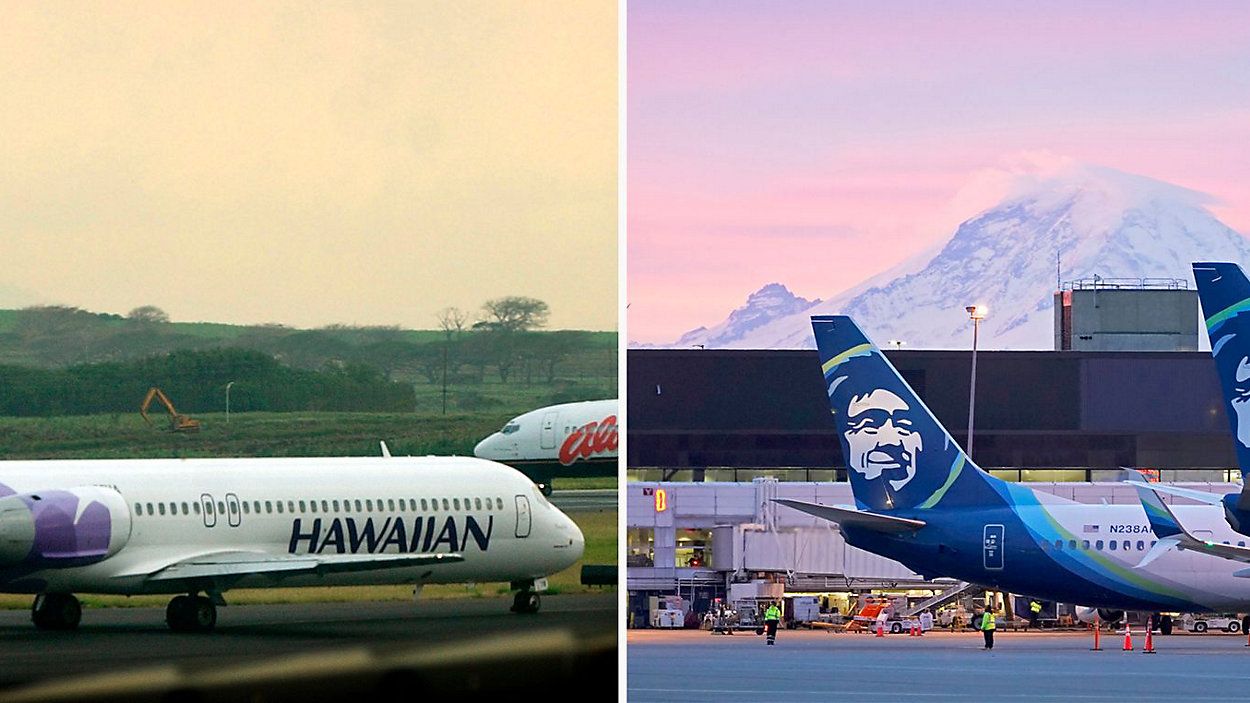Eight passengers filed an antitrust lawsuit in federal court on Monday to block the $1.9 billion acquisition of Hawaiian Airlines by Alaska Airlines.
On Dec. 2, 2023, Alaska announced it was hoping to buy Hawaiian, while taking on $900 million of Hawaiian’s debt. The merged company would continue to operate both airlines with independent brands while combining their operating platform.
The suit argues that the merger of the airlines violates federal law by lessening competition and threatening Hawaii’s economy. In particular, the suit says combining the airlines will cause layoffs, higher prices and less frequent flights.
Three of the plaintiffs live in Hawaii, while the remaining five live in California and other states in the U.S. mainland. They are represented by attorneys Joseph Alioto and Tatiana Wallace of the Alioto Law Firm in San Francisco and Terence O’Toole, Andy Lautenbach and Kukui Claydon of the Starn, O’Toole, Marcus and Fisher Law Firm in Honolulu, Hawaii.
According to the suit, the merger of the airlines will give Alaska over 40% capacity share for Hawaii-U.S. mainland routes, becoming the largest airline for these routes. Alaska will also eliminate Hawaiian as a competitor in 12 specific routes, which currently overlap.
The suit also says Hawaii’s economy will be impacted because Hawaiian’s 7,200 employees, most of whom are Hawaii residents, may be eliminated or moved to Alaska’s headquarters in Seattle. Hawaiian’s Oahu headquarters may also be closed down. In 2022, Hawaiian spent $1.6 billion in Hawaii.
The shareholders of Hawaiian Holdings voted to approve the merger deal on Feb. 16, 2024. The merger is currently under antitrust review by the U.S. Department of Justice. Both airlines have been working cooperatively with the DOJ, according to a March filing with the U.S. Securities and Exchange Commission.
However, under the Biden administration, the DOJ has been more conservative about airline consolidation, citing concerns of higher prices.
The suit notes that in January a federal judge struck down the $3.8 billion merger between JetBlue and Spirit Airlines because it would “substantially lessen competition.”



